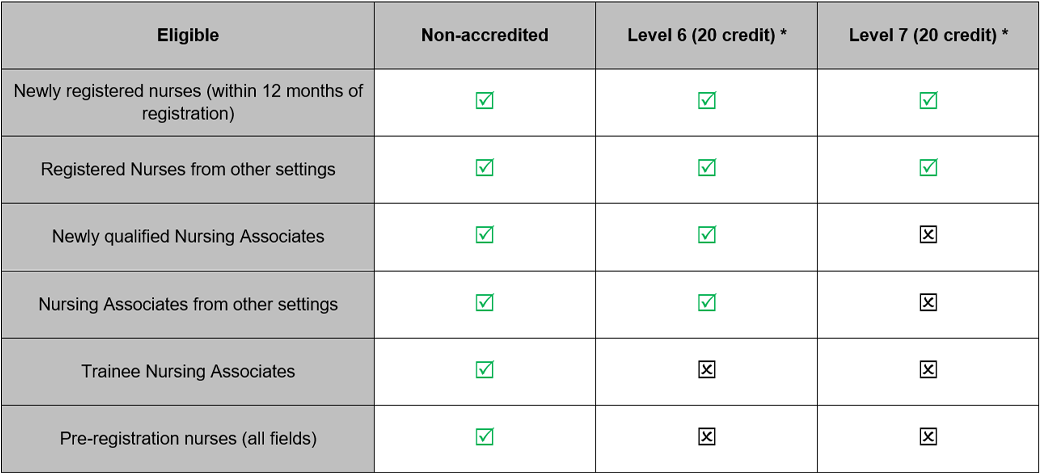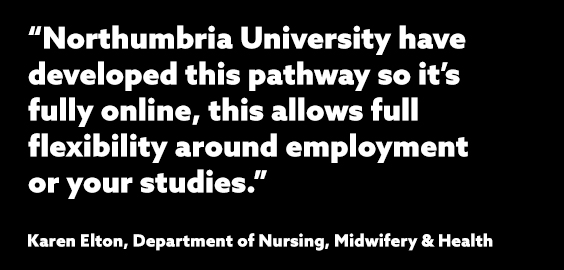-
Study
-
Quick Links
- Open Days & Events
- Real-World Learning
- Unlock Your Potential
- Tuition Fees, Funding & Scholarships
- Real World Learning
-
Undergraduate
- Application Guides
- UCAS Exhibitions
- Extended Degrees
- School & College Outreach
- Information for Parents
-
Postgraduate
- Application Guide
- Postgraduate Research Degrees
- Flexible Learning
- Change Direction
- Register your Interest
-
Student Life
- Students' Union
- The Hub - Student Blog
- Accommodation
- Northumbria Sport
- Support for Students
-
Learning Experience
- Real-World Learning
- Research-enriched learning
- Graduate Futures
- The Business Clinic
- Study Abroad
-
-
International
International
Northumbria’s global footprint touches every continent across the world, through our global partnerships across 17 institutions in 10 countries, to our 277,000 strong alumni community and 150 recruitment partners – we prepare our students for the challenges of tomorrow. Discover more about how to join Northumbria’s global family or our partnerships.
View our Global Footprint-
Quick Links
- Course Search
- Undergraduate Study
- Postgraduate Study
- Information for Parents
- London Campus
- Northumbria Pathway
- Cost of Living
- Sign up for Information
-
International Students
- Information for International Students
- Northumbria and your Country
- International Events
- Application Guide
- Entry Requirements and Education Country Agents
- Global Offices and Regional Teams
- English Requirements
- English Language Centre
- International student support
- Cost of Living
-
International Fees and Funding
- International Undergraduate Fees
- International Undergraduate Funding
- International Masters Fees
- International Masters Funding
- International Postgraduate Research Fees
- International Postgraduate Research Funding
- Useful Financial Information
-
International Partners
- Agent and Representatives Network
- Global Partnerships
- Global Community
-
International Mobility
- Study Abroad
- Information for Incoming Exchange Students
-
-
Business
Business
The world is changing faster than ever before. The future is there to be won by organisations who find ways to turn today's possibilities into tomorrows competitive edge. In a connected world, collaboration can be the key to success.
More on our Business Services-
Business Quick Links
- Contact Us
- Business Events
- Research and Consultancy
- Education and Training
- Workforce Development Courses
- Join our mailing list
-
Education and Training
- Higher and Degree Apprenticeships
- Continuing Professional Development
- Apprenticeship Fees & Funding
- Apprenticeship FAQs
- How to Develop an Apprentice
- Apprenticeship Vacancies
- Enquire Now
-
Research and Consultancy
- Space
- Energy
- AI Futures
- CHASE: Centre for Health and Social Equity
- NESST
-
-
Research
Research
Northumbria is a research-rich, business-focused, professional university with a global reputation for academic quality. We conduct ground-breaking research that is responsive to the science & technology, health & well being, economic and social and arts & cultural needs for the communities
Discover more about our Research-
Quick Links
- Research Peaks of Excellence
- Academic Departments
- Research Staff
- Postgraduate Research Studentships
- Research Events
-
Research at Northumbria
- Interdisciplinary Research Themes
- Research Impact
- REF
- Partners and Collaborators
-
Support for Researchers
- Research and Innovation Services Staff
- Researcher Development and Training
- Ethics, Integrity, and Trusted Research
- University Library
- Vice Chancellors Fellows
-
Research Degrees
- Postgraduate Research Overview
- Doctoral Training Partnerships and Centres
- Academic Departments
-
Research Culture
- Research Culture
- Research Culture Action Plan
- Concordats and Commitments
-
-
About Us
-
About Northumbria
- Our Strategy
- Our Staff
- Our Schools
- Place and Partnerships
- Leadership & Governance
- University Services
- Northumbria History
- Contact us
- Online Shop
-
-
Alumni
Alumni
Northumbria University is renowned for the calibre of its business-ready graduates. Our alumni network has over 253,000 graduates based in 178 countries worldwide in a range of sectors, our alumni are making a real impact on the world.
Our Alumni - Work For Us
Discovering a Nursing Career in General Practice is a free, fully online course that has been commissioned and supported by NHS England to fill the knowledge gap that GP Practices are perceived to be experiencing.
Working as a GP Nurse (GPN) is an incredibly different role to any other nursing role within the NHS and it has been observed that the current General Practice Nursing workforce is struggling to understand what is expected of them due to the dynamic nature of the job. Furthermore, the GPN workforce is expected to decrease in the near future because many GP Nurses are reaching retirement age. With that in mind, this course is also designed to help in interviews for primary care roles as the organisation section of the course will teach you the organisation structure of a General Practice, the required values and behaviours of a GP Nurse, and progression in the role. If successful in the interview, the clinical section will help you hit the ground running it teaches how to combat the 16 most common clinical conditions you would treat.
No matter what level you choose to study the course content will be the same, the only factor that separates the course is whether an assessment is required and how many academic credits you will receive. This course is accessible to anyone in the country as it relies on no live teaching, instead you will be taught by a variety of online lessons and quizzes that test the knowledge that you have just learned.
The indicative content is set nationally by NHSe, the course focuses on the following skills and topics:
- Introduction to primary care services delivery and roles within the setting
- Communication & consultation skills in primary care
- Equality, diversity & Inclusion for primary care service delivery
- Running clinics as a primary care practitioner
- Immunisations in primary care
- Overview of long-term condition management
- Mental health in the community setting
- Dementia care in the community
- Overview of sexual health and contraception provision
- Overview of learning disability management
- Introduction to travel health
- Supporting the application process and securing a role in primary care
The programme is displayed as a 15-week course, but it is entirely down to you how long it takes. As you have 24/7 access to the course materials you can study the contents as quickly or carefully as you want.
Entry Requirements
The module will be nationally recognised and made available for Pre-Registration Nurses, Registered Nurses, Trainee Nursing Associates and Nursing Associates who are considering a career in Primary Care/General Practice.

*please note a non-accredited module is also to be offered to widen access
The current application deadline dates have been increased, now the course is available to enrol on from:
- July 2025
- September 2025
- November 2025
- January 2026
- March 2026
- May 2026
- July 2026
Watch the course video below:
Course FAQs
Yes, this is possible. But unfortunately, your staff would not be eligible to receive the funding that makes the course free-of-charge for the student.
Instead, we would recommend the dedicated career start programme, this is more beneficial for nurses already in post as it follows the GPN fellowship criteria. With this programme they would be able to access the materials from CNO002 within their modules.
The course is the length of 1 academic quarter which is 15 weeks. The course relies on no live teaching and all the content is readily available online once you have enrolled. This means you can choose to complete the course as quickly or carefully as you want. In sum, the course content and any assignment responsibilities have to be completed within 15 weeks of enrolment.
In total, there are 7 organisational lessons and 21 clinical lessons to complete.
The course doesn’t cost you anything as it is fully funded by the NHS to reduce the recruitment and retention issue in the General Practices.
You do not need to complete this course to work in a GP. However, this course has been commissioned to address the current and future issues General Practices could potentially face. It has come to the attention of the NHS that many GP Nurses are not fully aware of what is expected of them in this role, so they are encouraged to take this course to bridge the knowledge gap.
Secondly, many GP Nurses are close to retirement age so we could face a nursing shortage in our already struggling service. Therefore, this course is ideal for current nursing students, or any current registered nurses or nursing associates who wish to transition into a GP Nursing role.
Finally, the course acts as a good refresher and preparation resource for interviews and anyone who has recently started in a GP Nursing role.
This all depends on your current role or level of education. If you are a student nurse or trainee nursing associate, you are only eligible for the non-accredited course. If you are a registered nursing associate, you are eligible for the non-accredited and level 6 course. If you are a registered nurse, you are eligible for all 3 levels of the course.
-
If you do the non-accredited version, you will receive no academic credits.
-
If you complete the course content and pass the assessment of the level 6 course, you will receive 20 academic credits at level 6.
-
If you complete the course content and pass the assessment of the level 7 course, you will receive 20 academic credits at level 7.
All the courses have the same content, the only difference is the Level 6 and Level 7 courses require you to complete an assessment. Level 6’s assignment consists of 2 reports totalling 2500 words. Level 7’s assignment consists of 2 reports totalling 3500 words.






